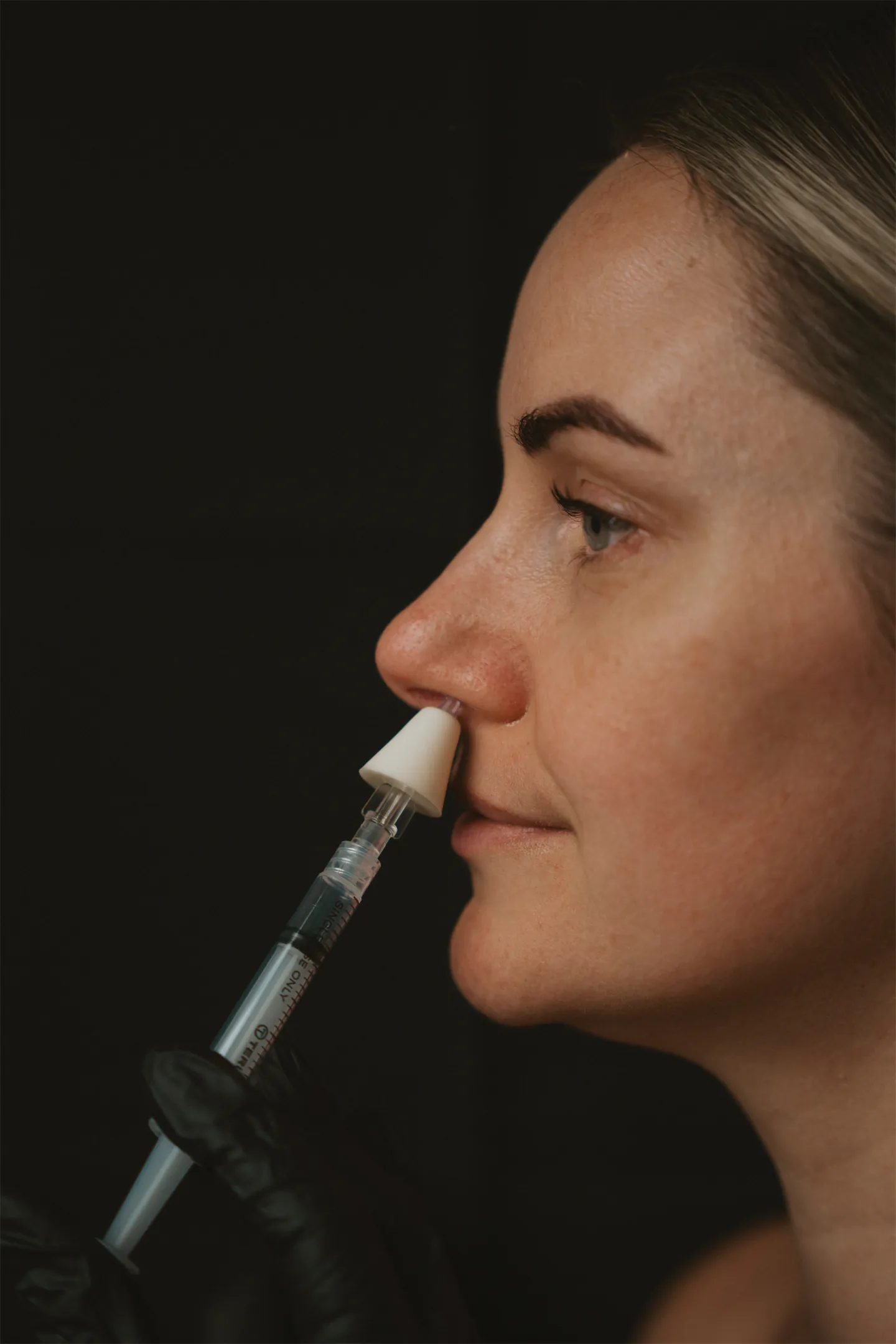Allergic rhinitis, commonly known as hay fever, is one of the most common chronic respiratory conditions in Australia. The latest Australian Bureau of Statistics data shows that almost one in four (23.9%) Australians is afflicted by the condition, up from 15% in 2008.

If you are one of the many Perth residents who dread the changing seasons due to hay fever symptoms, you are not alone. We invite you to request a consultation to discuss your concerns and explore potential treatment options available to you.
A Note From Dr Aleks
Hay fever may be common, but its impact on your life should not be underestimated. Stuffiness, sneezing and watery eyes are not mere inconveniences. Hay fever can disrupt your sleep, impair your concentration and productivity, reduce your sense of smell or taste, increase your vulnerability to sinus infections, and trigger or worsen asthma attacks if you are susceptible to them.
Our goal is not just to temporarily relieve your symptoms — we want to help you regain control over your health and comfort throughout all seasons. We approach hay fever with the same medical rigour we apply to all conditions, staying informed of emerging solutions while prioritising safety and evidence-based care.
What Is Hay Fever?
Hay fever is an allergic reaction that occurs when your immune system overreacts to substances in the environment that are typically harmless. When you encounter these allergens, your body releases chemicals like histamine that cause inflammation and irritation in your nasal passages, eyes and throat.
Despite its name, hay fever is rarely caused by hay and doesn't produce a fever. The condition can be:
- Seasonal: Occurring during specific times of the year (typically spring, summer or early autumn) when certain plants release pollen into the air.
- Perennial: Present year-round, usually triggered by indoor allergens like dust mites, pet dander or mould.
- Occupational: Resulting from workplace exposures to allergens or irritants.
Conventional hay fever treatments sometimes fall short, especially for severe or persistent cases.
What Causes Hay Fever?
Common triggers include:
- Pollen from grasses, trees and weeds
- Dust mites
- Pet dander
- Mould spores
Other irritants include smoke, strong odours and air pollution.
What Are the Symptoms of Hay Fever?
For many people, hay fever is more than just occasional sneezing. You might experience:
- Sneezing
- Runny or blocked nose
- Itchy, red, watery eyes
- Itchy throat, mouth, nose and ears
- Cough
- Postnasal drip
- Fatigue
- Headache
- Sinus pressure
Could a Hay Fever Treatment Be Right for Me?
Scheduling a hay fever consultation may be particularly beneficial if:
- You've tried conventional treatments with limited success
- Your symptoms significantly impact your quality of life
- You're seeking alternatives to daily medication use
- You're interested in a comprehensive assessment of your condition
- You have complex allergies or health considerations
We invite you to book a consultation with us to discuss your needs. During this appointment, we will honestly assess whether our treatment options are appropriate for you.
The OLA Experience
Consultation
During your first appointment, we'll review your complete medical history and any previous allergy testing or treatments you may have undergone. We'll discuss your specific hay fever symptoms in detail, including their severity and how they affect your day-to-day life.

Preparation
Your doctor will help identify potential triggers through thoughtful questions about your environment and lifestyle, factors that might contribute to your symptoms.

Treatment
Based on your consultation, your doctor will discuss appropriate medical treatments that may benefit your condition. Your treatment plan may include recommendations for environmental modifications to help reduce your exposure to allergens that trigger your symptoms. We may provide referrals to other specialists if your condition requires additional expertise.

What Results Can I Expect From My Treatment?
Results vary depending on the severity and nature of your hay fever, your specific triggers, your medical history, and your adherence to the recommended treatments and environmental modifications.
Many patients report improvements in their quality of life, including better sleep, reduced reliance on antihistamines, fewer sick days and greater enjoyment of outdoor activities. Some notice changes relatively quickly, while others experience more gradual improvement.
During your consultation, your doctor will discuss realistic expectations based on your specific situation.
Frequently Asked Questions
When you encounter an allergen to which you're sensitive, your body launches a complex reaction:
- Your immune system identifies the allergen as harmful (even though it's harmless to most people)
- Antibodies called Immunoglobulin E (IgE) attach to the allergen
- This triggers the release of inflammatory chemicals, primarily histamine
- Histamine causes blood vessels to expand and tissues to swell
This process is what leads to the typical symptoms of hay fever.
All medical treatments have potential benefits and risks. During your consultation, your doctor will explain the specific considerations relevant to your recommended treatment plan. Our priority is always to select approaches with the most favourable benefit-to-risk ratio for each individual patient.
The symptoms of hay fever can last for several weeks or months, especially for people who do not or cannot seek treatment. With treatment, it's possible to notice improvement within a few days to a few weeks.
You cannot prevent hay fever from developing, especially if you have a genetic predisposition. However, you can reduce your exposure to allergens, which can lessen the severity of your symptoms.
While there is no cure for hay fever, treatment can offer extended relief, often for several months. Ongoing treatment is needed to maintain the positive effects.
Request Your Private
Consultation at OLA Aesthetics
If you're struggling with persistent hay fever symptoms, we invite you to schedule a consultation at OLA Aesthetics. Our medical team will take the time to understand your concerns and develop a personalised approach to help you breathe more freely.






